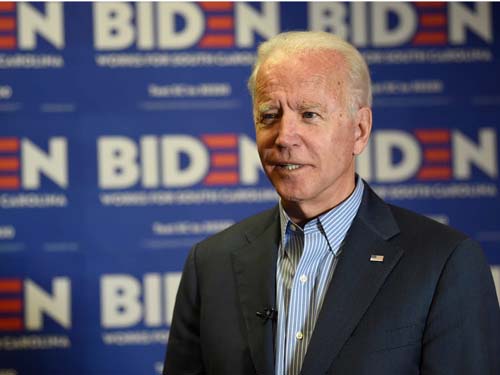
Can Biden move the Rohingya crisis toward a resolution?
Dr Azeem ibrahim
After four years of the US abdicating its role as a global leader, the incoming Biden administration will be keen to reassert American leadership around the world. Few issues will be higher on the agenda than the Rohingya genocide.
In normal times, one would expect a US president to be the leading voice on the international stage. But these are not normal times. The US stands more isolated than at any time since the Second World War.

Washington will therefore need to be very proactive and very focused on rebuilding its standing on the international stage — something that has been its greatest national-defense asset throughout the post-war era.
There is every indication that Joe Biden understands this. It is also reassuring that he is not a novice in these matters. He has decades of foreign policy experience and has been involved trying to solve various crises since Bosnia in the 1990s.
He has also been explicit in his desire to re-establish a robust, rules-based global order grounded in the founding values of the
UN, but in which the US would once again be known and trusted as the ultimate enforcer of international law around the world.
So one should expect that the Biden administration will handle fresh crises with the kind of humanity and determination one would have expected in, for example, the days of the Balkan wars.
The greatest test for this reset, and the global consequences it will engender, will be the ongoing Rohingya crisis. Currently, the overwhelming majority of Myanmar’s Rohingya people are languishing in refugee camps across the border in Bangladesh. Almost all of those who remain in Myanmar are effectively captives in so-called “internally displaced people’s camps,” which are run by the very military force that forced their brethren from the country.
Myanmar has had no meaningful push back from the West as a result of the persecution of the Rohingya, and it also continues to enjoy political and economic support from China.
Clearly, things need to change — and the US has a wide-ranging arsenal of measures it can deploy against genocidal regimes.
The Trump administration had no interest in this issue but for the incoming Biden administration, this will be where the rubber meets the road for their vision of America as a leader of the free world, and as a global guarantor of international law.
It is unlikely that Naypyidaw will relent in the first instance but, before long, a stringent sanctions regime will be back on the table.
To begin with, expect a much-increased focus on the issue of the Rohingya at the UN — though, naturally, progress there will be blocked by Beijing. Also expect significant back-channel communication between the US government and the government of Myanmar, with the former putting pressure on the latter to redress a legal regime that discriminates against the Rohingya and other minorities; to ramp down the wars waged by the military against the myriad of ethnic minorities throughout the country; and to surrender to international legal bodies those suspected of orchestrating and executing the genocide of the Rohingya.
It is unlikely that Naypyidaw will relent in the first instance but, before long, a stringent sanctions regime will be back on the table — which will inevitably also affect Beijing’s Belt and Road commercial interests in Myanmar. Once that comes into play, progress for the Rohingya will become possible. It will not be easy and the results are not a forgone conclusion, but there is yet hope for this persecuted group.
Dr. Azeem Ibrahim is a director at the Center for Global Policy in Washington.
